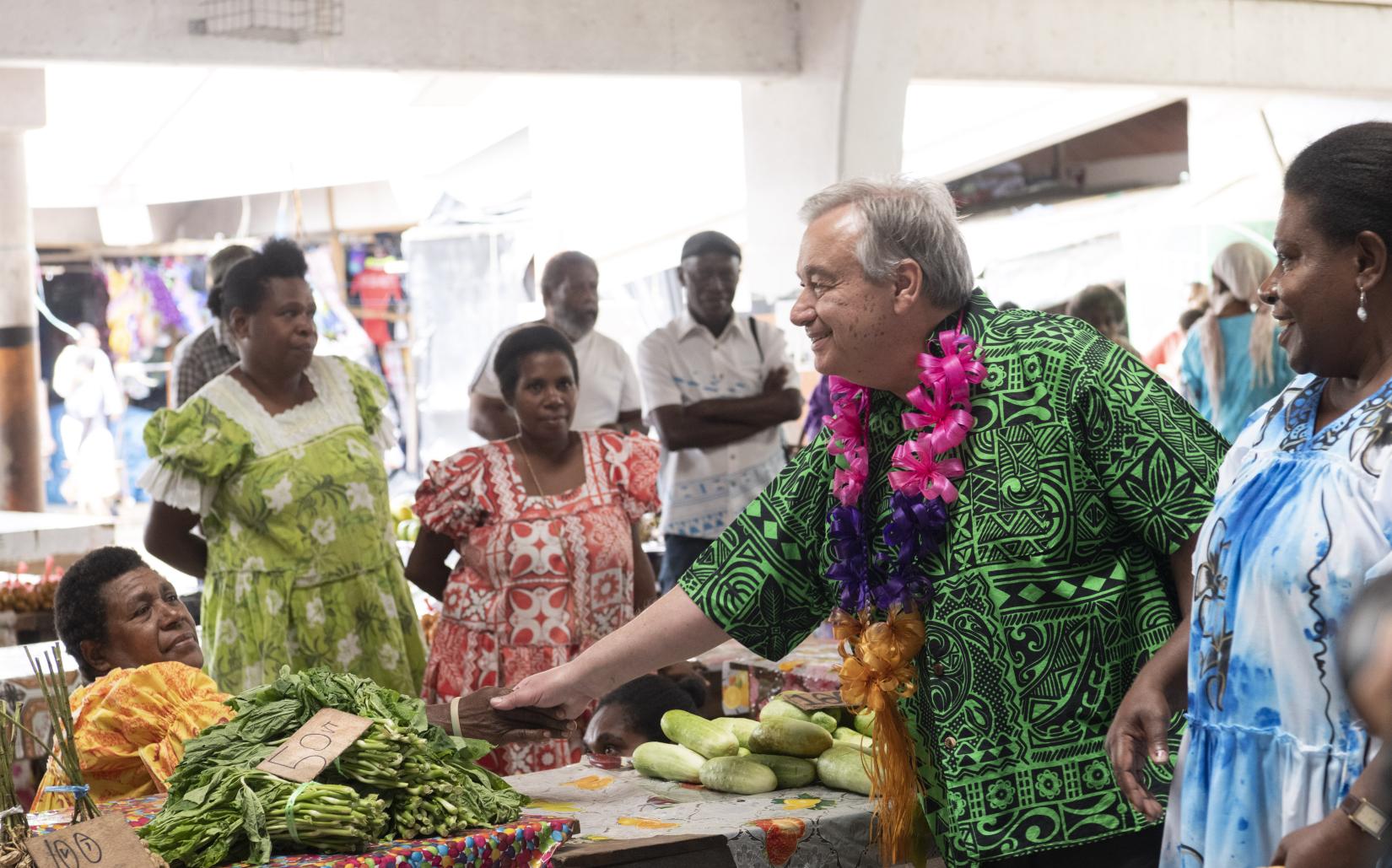Vanuatu
Vanuatu is a culturally and linguistically diverse nation of 83 volcanic and coral islands in the South Pacific. Around 80% of Vanuatu’s population of 326,740[1] live in rural areas. Vanuatu has one of the highest population growth rates in the region.

Vanuatu is a lower-middle-income country. It was ranked in the medium human development category, number 140 of 193 assessed in the 2024 Human Development Report.[1] Almost 67% of employment is in the informal sector with youth unemployment at 9.7%.[2]
Vanuatu has high rates of stunting at 28.5%, with higher rates observed among the poorest quintiles and in rural areas.[3] Childhood overweight is low at 4.6%,[4] but rises to 31% among school-aged children (5-19 years).[5]
Vanuatu is the world’s most vulnerable country to climate and natural hazard risk, according to the World Risk Index,[6] based on its high exposure to natural hazards and low coping and adaptive capacities. Natural hazards confronted by Vanuatu include cyclones, volcanic eruptions, floods, earthquakes, tsunamis, droughts, and sea level rise. An IMF study estimates that Vanuatu has a 56.8% chance of suffering a disaster related to natural hazards each year, causing a mean annual damage of 42.8% of Gross Domestic Product, and affecting 12% of the population.[7]
Despite ratifying The Convention on the Elimination of all Forms of Discrimination Against Women, there are low levels of women’s representation in national, provincial, and municipal government. Labour force participation and access to post-secondary training are lower for women, and land tenure is patrilineal. Domestic violence is widespread, with at least 60% of women in an intimate partner relationship having experienced physical or sexual violence by their partners.[8]
Current data indicates that Vanuatu will miss the targets of the 2030 Agenda for Sustainable Development. While there has been progress, many Sustainable Development Goals (SDGs) are significantly off track, with decreasing trends in SDG 1, no poverty, and SDG 16, peace, justice and strong institutions.[9]
Development goals and objectives
The UN has been present in Vanuatu since 1984. The United Nations Pacific Sustainable Development Framework 2023-2027 outlines the UN’s development priorities and localized responses in 14 Pacific Island countries and territories, including Vanuatu, to advance the global 2030 Agenda for Sustainable Development. The UN Pacific Sustainable Development Framework complements the Vanuatu 2030: “The People’s Plan”; particularly in the areas of environment and natural resource management, economic development, gender and social inclusion, health, education, water and sanitation, and governance.
[1] United Nations Development Programme (UNDP). 2024. Human Development Report.
[2] ILO. Australian Government Department of Employment and Workplace Relations. 2024. Vanuatu: Country Factsheet [Working Draft]
[3] UNICEF, WHO & WB. Op. Cit.
[4] Ibid.
[5] UNICEF. 2019. The State of the World´s Children report. Growing well in a changing world. Children, food and nutrition.
[6] Bündnis Entwicklung Hilft. 2020. World Risk Report.
[7] Lee, Dongyeol; Zhang, Huan; Nguyen, Chau. 2018. The Economic Impact of Natural Disasters in Pacific Island Countries: Adaptation and Preparedness. IMF Working Paper WP/18/108.
[8] 2022 Country Reports on Human Rights Practices: Vanuatu, United States Department of State, https://www.state.gov/reports/2022-country-reports-on-human-rights-practices/vanuatu
[9] Sachs, J.D., Lafortune, G., Fuller, G. (2024). The SDGs and the UN Summit of the Future. Sustainable Development Report 2024. Paris: SDSN, Dublin: Dublin University Press. 10.25546/108572

